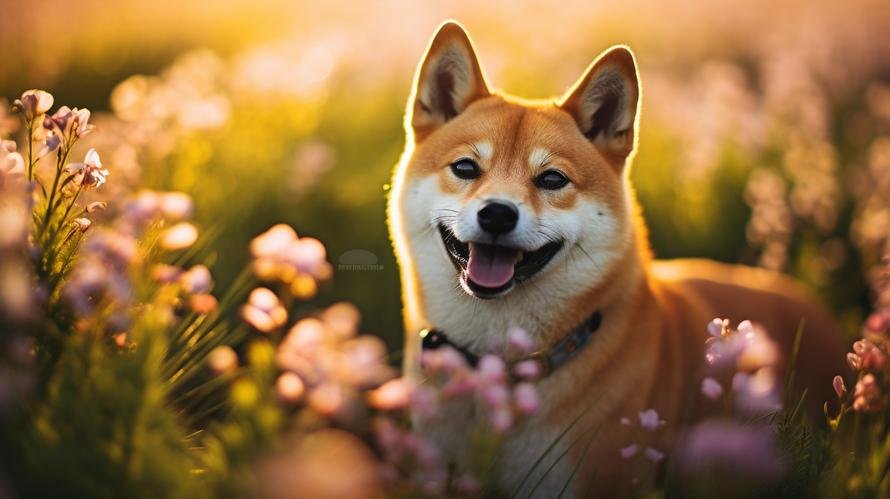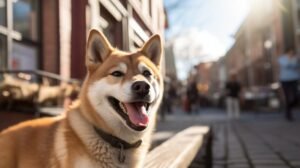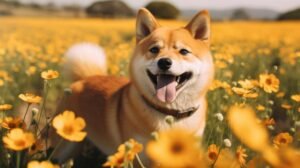Are you familiar with the dog breed that’s consistently ranked as the most popular in Japan, and whose internet fame even rivals that of cats? Meet the Shiba Inu, a compact, muscular dog, agile and rich in personality. Some of you may be familiar with this breed due to “Doge,” a famous Shiba Inu who became an internet sensation a few years ago. The photographs of this lovely dog with amusing command of English grammar have been bonding humans worldwide in shared laughter.
As the popularity of this breed rises, a question frequently arises: Is a Shiba Inu a dangerous dog? It’s critical to provide quality, accurate information to aid pet owners and animal lovers in making informed decisions about choosing a Shiba Inu as a companion.
Before diving into this topic, let’s learn a bit more about the breed itself. The Shiba Inu, also known as the “Little Brushwood Dog,” originates from Japan, reaching back as far as 300 B.C. Bred to hunt small wildlife, they are tough, agile, and alert, with a thick double coat to shield them from harsh weather conditions. Their striking appearance, resembling somewhat of a fox, makes them instantly recognizable to dog lovers. However, alongside their undeniable beauty, they also come with their unique set of traits that potential owners should understand.
Well known for their intelligence, loyalty, and stubbornness, Shiba Inus are an interesting blend of temperaments. This combination makes them one of the more independent, and at times aloof, breeds out there. They are known to be incredibly clean, often likened to cats for their self-grooming habits. They are immensely proud and do not easily succumb to traditional obedience training, making them a fascinating but at times tricky breed to handle.
Now, back to our main question – Are Shiba Inus dangerous? The breed as such isn’t inherently dangerous. It’s a misconception often associated with any dog breed that shows a certain level of independence and possessiveness. With Shiba Inus, their territorial instincts, plus their bold and spirited nature, can lead to aggressive behavior if not properly trained and socialized.
Few cases could lead to aggression in Shiba Inus – Fear-based, possessiveness, pain-induced, and social aggression. If the dog perceives that their ownership of a valued resource (like food, toys, or territory) is threatened, they could display aggressive behavior. Similarly, if a Shiba feels threatened or is in pain, it might react aggressively out of fear or discomfort.
What pet owners need to understand is that aggression is typically a byproduct of a lack of socialization or bad experiences and not necessarily a confirmed attribute of the breed. A well-socialized and trained Shiba Inu can be a fantastic companion. It’s not the breed, but the individual dog’s upbringing, training, and genetics that ultimately influence its behavior.
So, how to prevent behavioral issues in Shiba Inus? Start with early socialization. Puppies should be introduced to various situations, people, and other animals to become comfortable as they grow. Regular exercise is another essential aspect of a Shiba Inu’s life. They are an energetic breed that requires not just physical but also mental stimulation. Training should include early obedience sessions – remembering always to be patient and assertive, never harsh.
Moreover, respecting their independence and providing them with personal space can work wonders in building a positive relationship with your Shiba Inu. Reward-based training, where the dog is encouraged and rewarded for good behavior, is highly recommended.
To conclude, labeling a Shiba Inu as ‘dangerous’ would be excessively unfair and frankly incorrect. Like any breed, they have their specific characteristics and potential challenges. The secret to a well-adjusted, happy Shiba Inu lies in understanding their personality, providing proper training, early socialization, good health care, and heaps of love.
Remember, every dog deserves the chance to have a happy, fulfilling life – and owners also have the responsibility to provide an environment where this is possible. The Shiba Inu is no exception. Respect, understanding and good training are foundations for a successful and happy life with these wonderful dogs. Let’s give them the love and care they deserve. After all, humans and dogs have been best friends for centuries for a reason!



